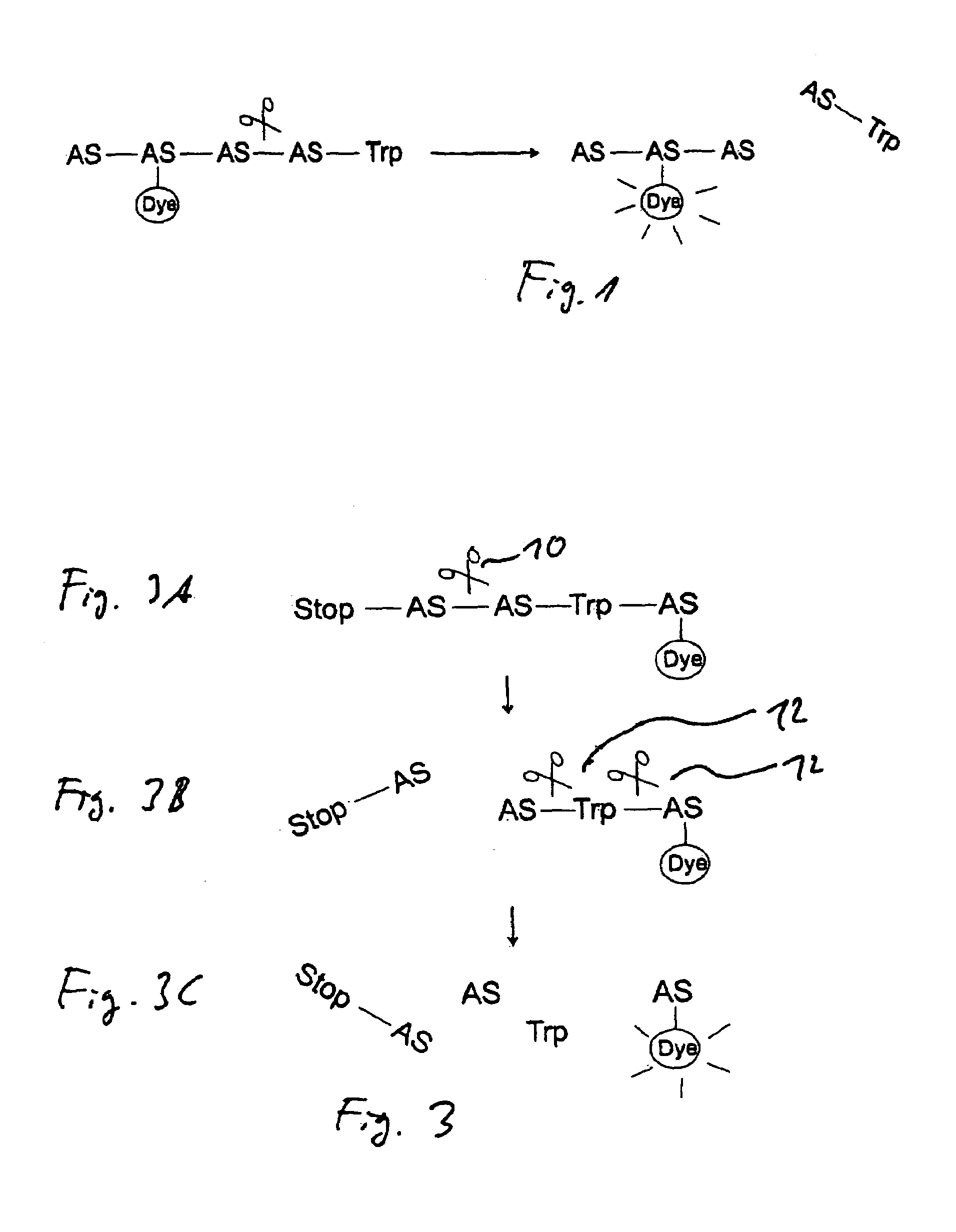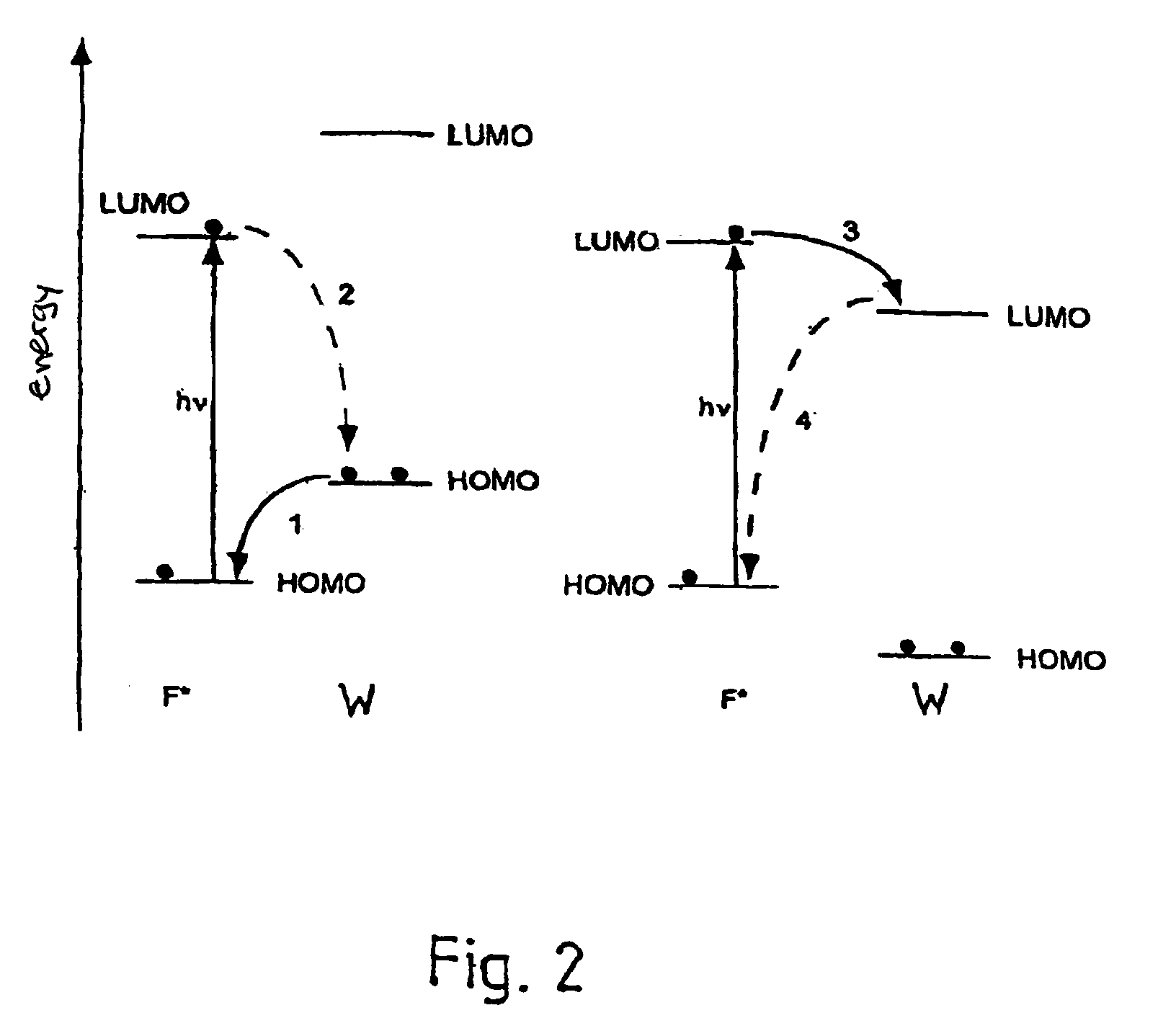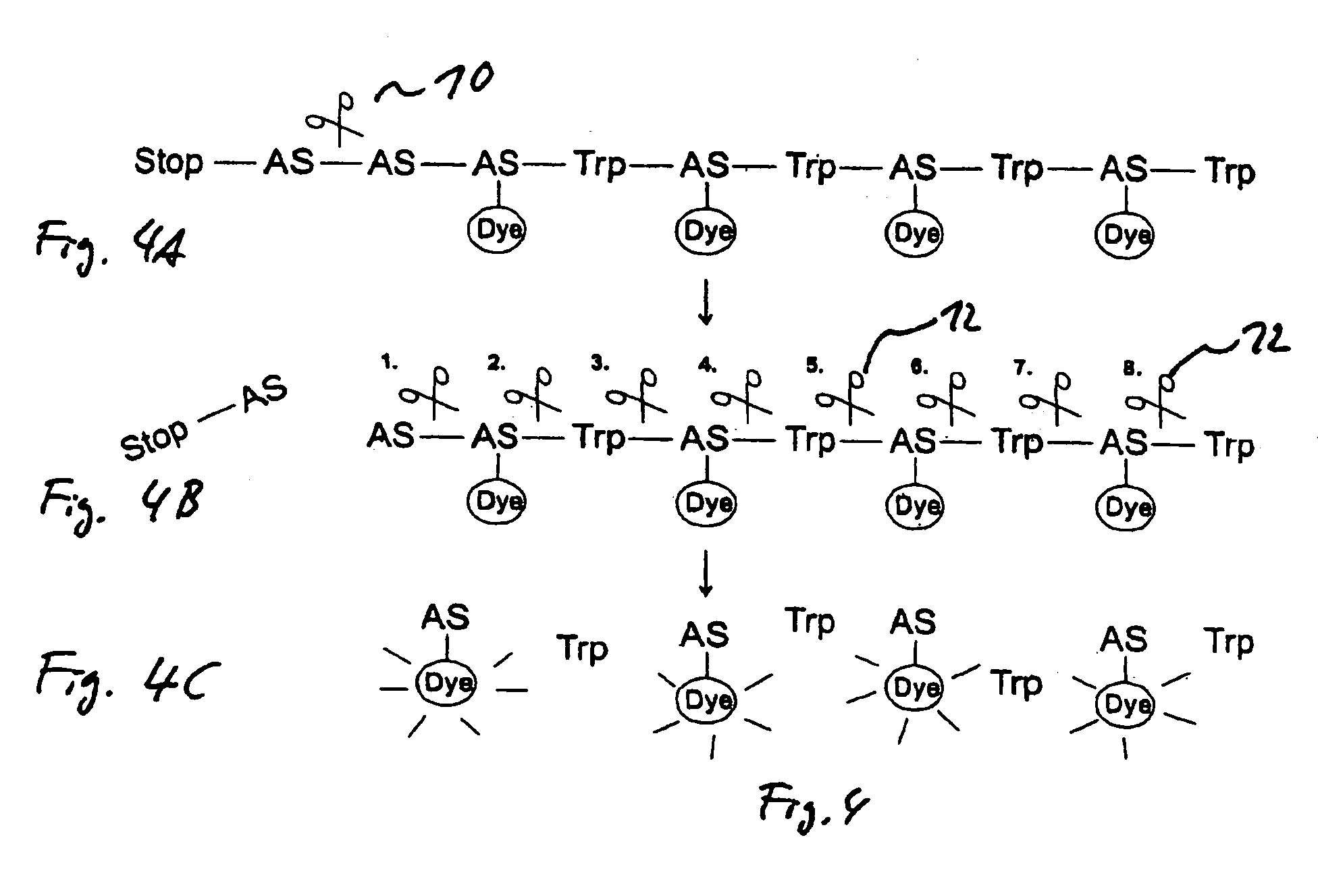Specific detection of proteolytic enzymes
a proteolytic enzyme and specific detection technology, applied in the field of specific detection of proteolytic enzymes, can solve the problems of halting propagation, inability to replicate the virus, increasing fluorescence, etc., and achieves the effect of reducing the number of measurements, reducing the number of errors, and increasing the fluorescen
Inactive Publication Date: 2008-02-12
F HOFFMANN LA ROCHE INC
View PDF3 Cites 10 Cited by
- Summary
- Abstract
- Description
- Claims
- Application Information
AI Technical Summary
Benefits of technology
[0050]If the substrate contains a multiplicity of quencher-and-fluorophore groups, a multiple increase in fluorescence can again be observed. The measurement time can be shortened considerably as a result. There is at the same time a marked increase in the signal. The great advantage of multiple marking is that with a single cleavage and
Problems solved by technology
Firstly, if the HIV protease is blocked, the HIV virus cannot replicate and its propagation is halted.
Secondly, infection with the HIV virus can take place via detection of the HIV protease.
Disadvantages are that the principle is not of general applicability, sometimes its action is nonspecific, and it is relatively insensitive.
If the peptide is cleaved b
Method used
the structure of the environmentally friendly knitted fabric provided by the present invention; figure 2 Flow chart of the yarn wrapping machine for environmentally friendly knitted fabrics and storage devices; image 3 Is the parameter map of the yarn covering machine
View moreImage
Smart Image Click on the blue labels to locate them in the text.
Smart ImageViewing Examples
Examples
Experimental program
Comparison scheme
Effect test
 Login to View More
Login to View More PUM
| Property | Measurement | Unit |
|---|---|---|
| Fluorescence | aaaaa | aaaaa |
Login to View More
Abstract
Specific detection of proteolytic enzymes is achieved by extinguishing dye fluorescence by the amino acid tryptophan. Ttyptophan is disposed on one side of the cutting site of a proteolytic enzyme while an amino acid marked with a dye is arranged on the other side. Extinction of fluorescence occurs prior to enzyme cutting. Spatial separation of the tryptophan and the dye takes place after cutting, whereby fluorescence extinction does not occur. The dye can then fluoresce and a signal increase occurs thereby indicating that cutting has been carried out and the presence of the enzyme.
Description
BACKGROUND OF THE INVENTION[0001]Proteolytic enzymes are proteases or peptidases, i.e. enzymes that are able to split or lyse peptides or proteins. The word “peptide” generally denotes a shorter amino acid sequence, whereas the word “protein” generally denotes larger molecules consisting of an amino acid sequence. Both terms are used synonymously in the following.[0002]Peptidases and proteases play a decisive role in protein activation, cell regulation and signal transmission. Their detection at maximum possible sensitivity is therefore of enormous importance for understanding the functioning of a cell and its communication, and for monitoring the course of diseases.[0003]Furthermore, precise knowledge of peptidase or protease concentration permits the targeted development of new therapeutic agents for inhibition, e.g. of HIV protease. HIV protease breaks down the HIV protein, which is at first very long after multiplication in a cell, into functioning individual proteins, which onl...
Claims
the structure of the environmentally friendly knitted fabric provided by the present invention; figure 2 Flow chart of the yarn wrapping machine for environmentally friendly knitted fabrics and storage devices; image 3 Is the parameter map of the yarn covering machine
Login to View More Application Information
Patent Timeline
 Login to View More
Login to View More IPC IPC(8): C12Q1/37A61K38/00C07K17/00G01N21/76H04B7/14C07K14/00
CPCC07K14/001
Inventor MARME, NICOLE
Owner F HOFFMANN LA ROCHE INC
Features
- R&D
- Intellectual Property
- Life Sciences
- Materials
- Tech Scout
Why Patsnap Eureka
- Unparalleled Data Quality
- Higher Quality Content
- 60% Fewer Hallucinations
Social media
Patsnap Eureka Blog
Learn More Browse by: Latest US Patents, China's latest patents, Technical Efficacy Thesaurus, Application Domain, Technology Topic, Popular Technical Reports.
© 2025 PatSnap. All rights reserved.Legal|Privacy policy|Modern Slavery Act Transparency Statement|Sitemap|About US| Contact US: help@patsnap.com



